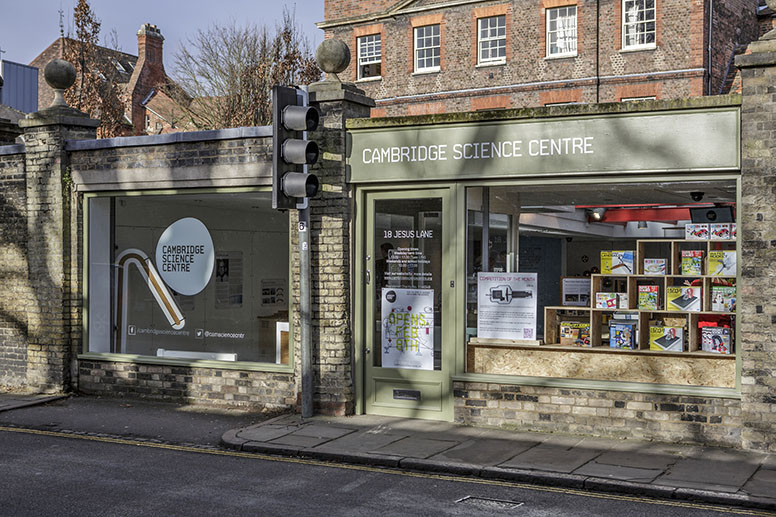A rocket-powered punt, fuelled by Fitzbillies Chelsea buns – could anything be more Cambridge?
On 21 July, the city will see the launch of the first ever rocket-powered punt, to mark the opening of an exhilarating new exhibition at Cambridge Science Centre, COSMIC. The Science Centre hopes to ‘challenge new frontiers’ in rocketry with its creation, named ‘Beagle’, which will take to the river at Darwin College for all to see. Its creator is rocket man Jon London, who came up with the madcap idea of turning Cambridge’s favourite sticky buns into rocket fuel. It’s hoped the experiment will inspire children to get involved with science. Says Cindy Forde, CEO of Cambridge Science Centre:
“We’ve got our new exhibition, COSMIC, opening next week and wanted to do something really fun and engaging to launch it. The best way to link Cambridge with space was obviously a punt! We went for drinks one evening and our rocketry specialist Jon London came up with the idea. Some thought he was completely mad but the rest of us thought it was a great idea. Fitzbillies immediately saw the genius of it so they were on board from the beginning. So were Darwin college – they couldn’t be more supportive. It’s a wonderful way of getting people interested in space.”
The COSMIC exhibition, which runs from 23 July until June next year, invites visitors step out of this world into a space adventure, exploring our solar system, stars and the extraordinary machines we travel in and send out to discover new frontiers. Its hands-on, interactive exhibits put visitors firmly at the controls.
“We’ve tried to look at space from all different angles, especially the human angle, so we’ll let people experience what it feel like to go out into space,” says Cindy. “We’ve got one exhibit where you can put your hands into astronaut gloves, then your hand has to operate in space-like conditions. We’ve got particles that have come from space and are billions of years old, there’s an exhibit which tells you what happens when planets collide, and something which enables you to explore gravity.”
Other highlights will include the opportunity to get up close to a real rocket engine and discover what it feels like to orbit a black hole. Why is it important for young people to learn about space and get passionate about science?
“Science underpins our whole world. We’re a very small planet, and we’re unique. We’ve travelled billions of miles yet we’re the only planet we’ve found so far that sustains life, so the fact that we’re in the process of trashing it is distressing. While people are looking into how we might colonise other planets, that’s a terrible thing to be considering before we’ve learned how to manage our own planet. “I hope the biggest lesson as we explore space is to feel a sense of wonder for our universe, and our responsibility to treat our planet more kindly. We’re becoming a very numerous species on a small planet, so understanding how to live harmoniously within that is one of the most important things young people will need to know.”
The Beagle will be launched at 12 noon, Darwin College, joined by The City of Cambridge Brass Band Quintet who will perform in honour of the punt’s maiden voyage. The punt won’t be headed for space, however, and is expected to move at a modest pace – so tourists needn’t take cover.
Asked how the buns will translate into rocket fuel, Cindy says: “You’ll have to wait and see! Jon has specially adapted a rocket engine to do it, and the buns have to be frozen in liquid nitrogen to transform into rocket fuel. He’ll give a briefing on the process on the day.” Alongside their new exhibition, Cambridge Science Centre has created a cosmic treasure trail around the city centre as another way of getting people engaged with outer space.
“We’ve transformed Cambridge into an interactive solar system,” Cindy explains. “Visitors are invited to take part in a cosmic challenge to find all the planets. It’s a scale model, so good luck to those trying to find Pluto! We’ve got a lot of local businesses involved, and there’s a little map available at the centre.”
She adds: “We want to make science fun, but there’s a serious discipline to learning as well. We want to open up children’s minds so they are inspired to ask questions, then find their own path to the answers.”
:: Cosmic opens 23 July, Cambridge Science Centre, Jesus Lane. Admission is £3.50 (£2.50 children).
www.cambridgesciencecentre.org

